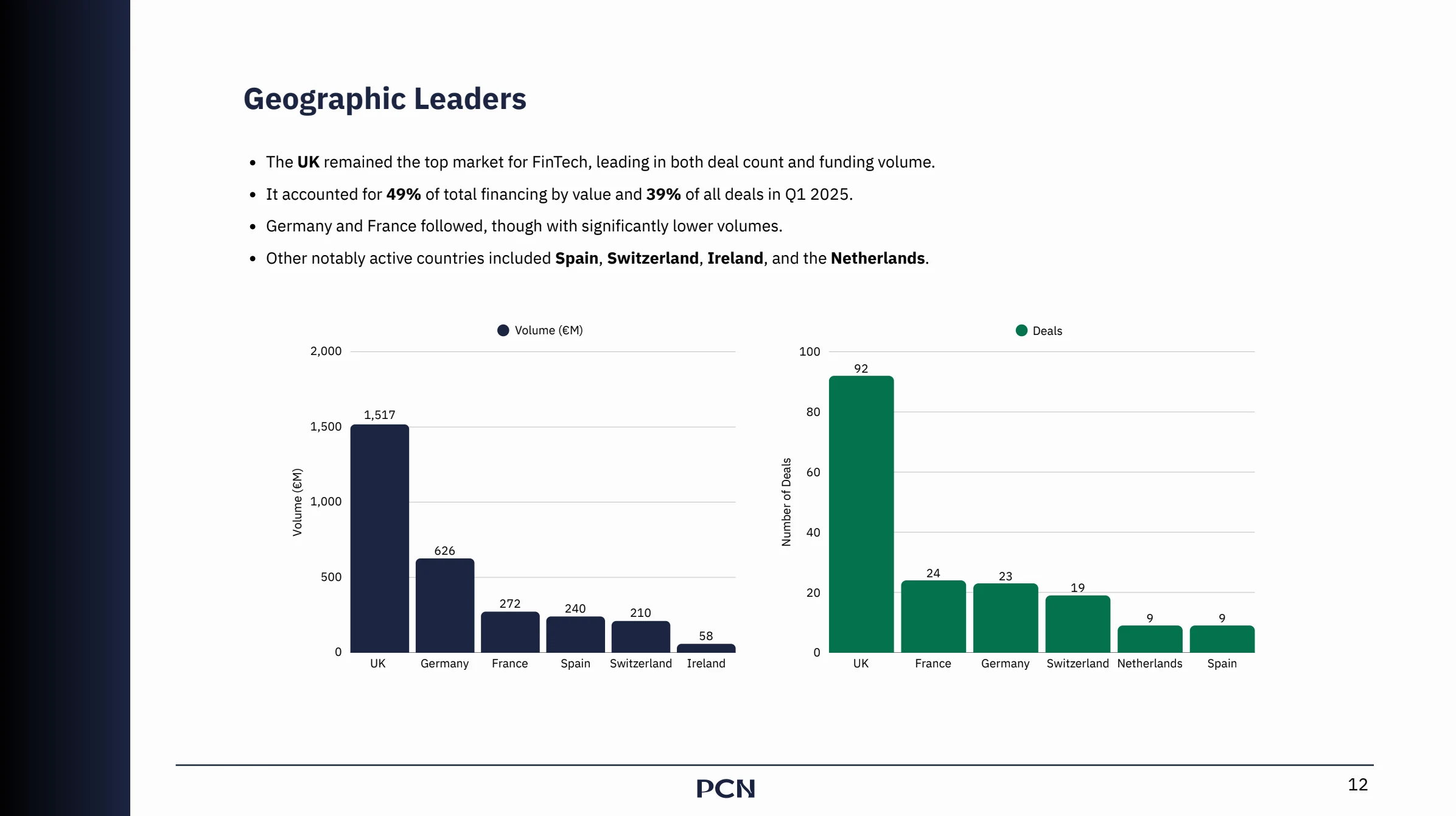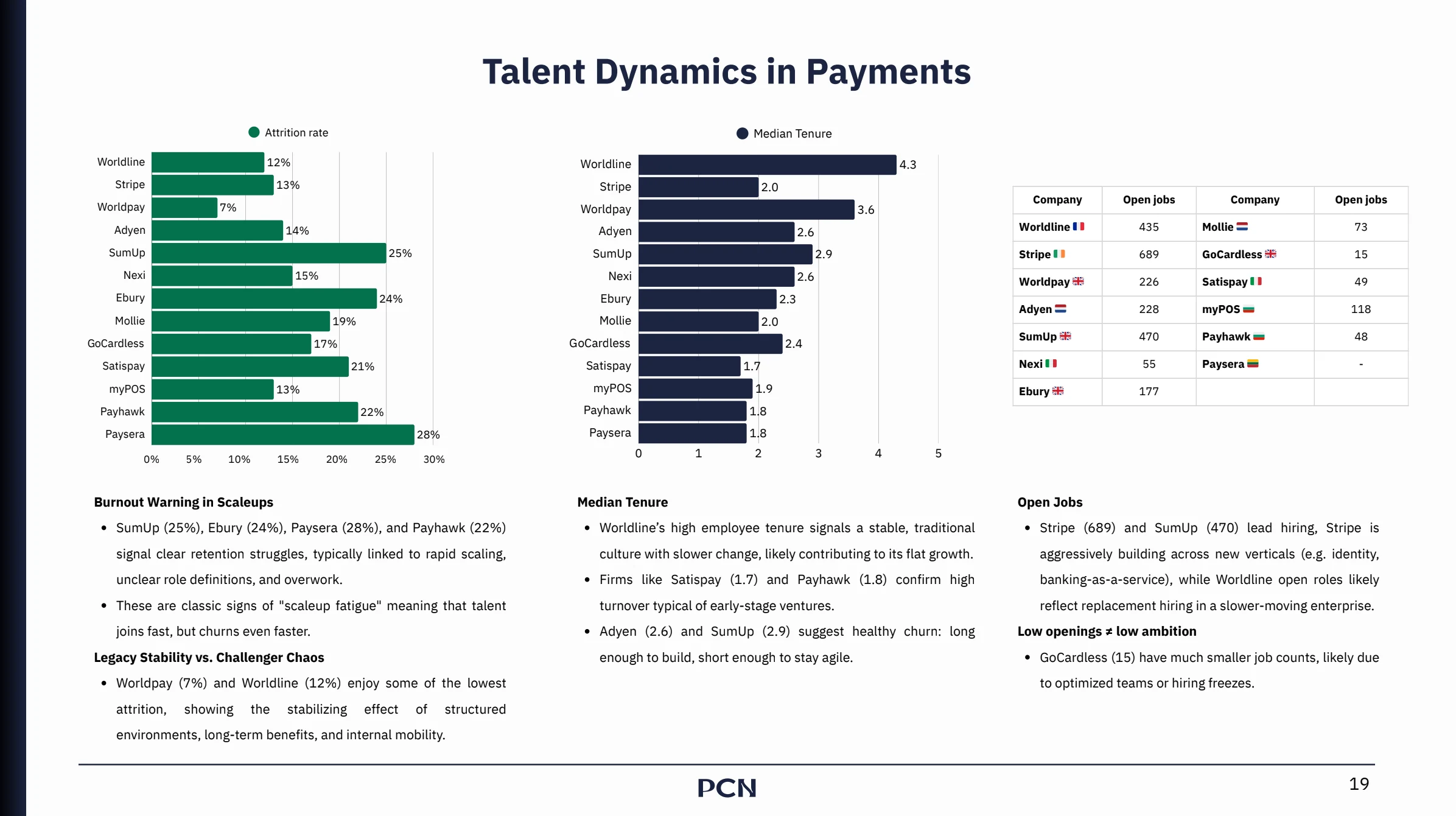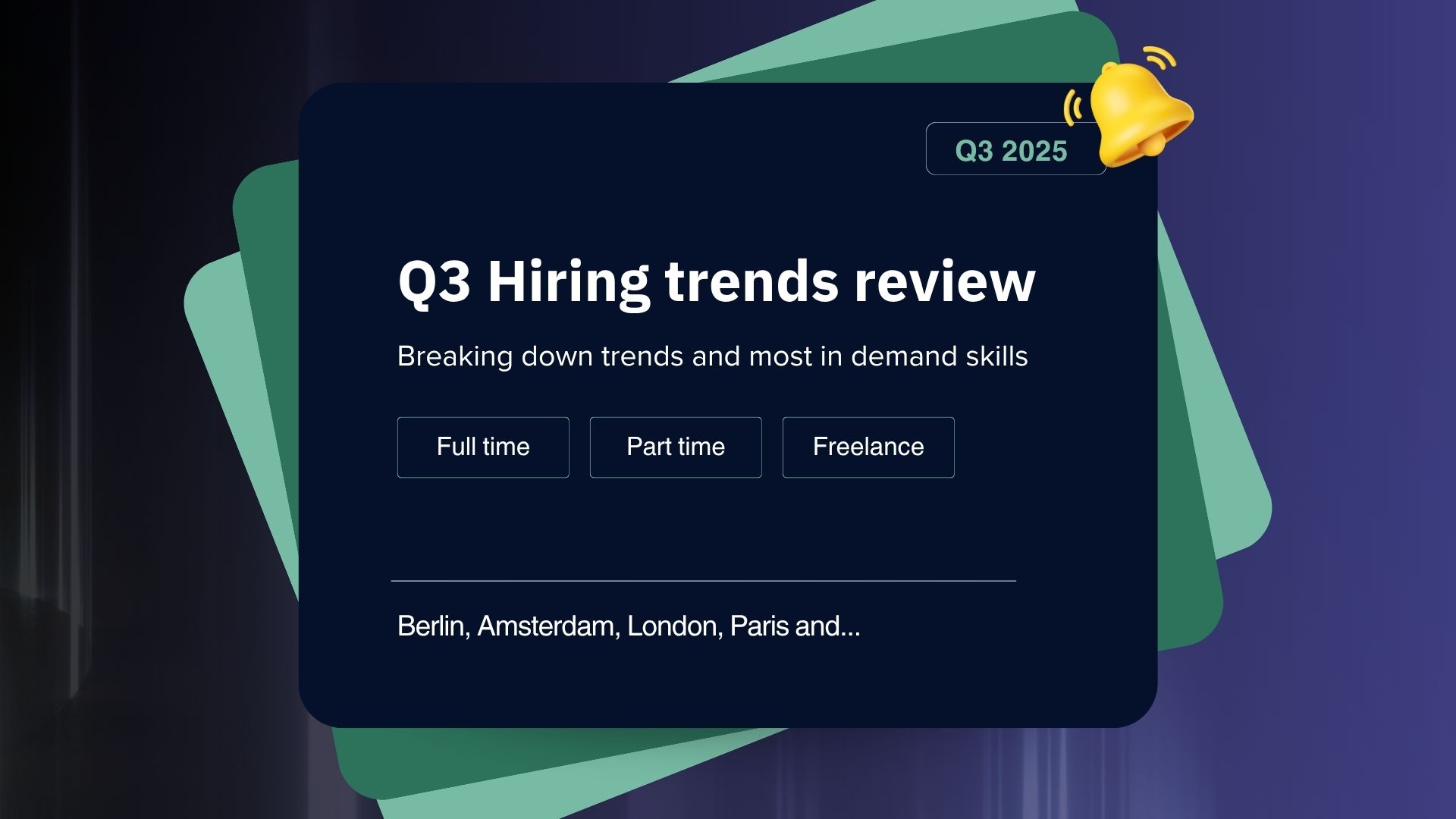The Money 20/20 Hiring Pulse in Fintech provides a comprehensive overview of hiring and talent trends across Europe’s fintech sector between Q1 2024 and Q1 2025. Drawing from data from over 50 companies in Payments, BNPL, Open Banking, and Banking-as-a-Service (BaaS), the report highlights how the industry is adapting to slower funding and growing operational scrutiny. The former “hire-to-grow” mindset has evolved into “hire-to-perform,” emphasizing retention, capability building, and operational strength.
Fintech Funding and Market Developments
European fintech funding dropped by 26% year over year in Q1 2025 but rebounded strongly from late 2024 lows. Although deal volume decreased, average deal sizes nearly doubled—signaling capital consolidation around mature, resilient players.
The UK remained Europe’s fintech powerhouse, leading both in deal count and funding volume, followed by Germany and France. However, fintech is losing relative investor attention to sectors like AI and healthtech, showing a shift toward profitability and sustainable growth. Despite this, fintech remains one of Europe’s most robust investment areas.

Talent Trends Across European Fintech
Fintech companies have shifted from rapid expansion to precision hiring, focusing on mission-critical functions:
-
Payments show hiring resilience and low attrition, led by established firms such as Worldline and Adyen, with strong demand for engineering and compliance roles.
-
Open Banking faces turbulence, with high churn and restructuring across technical teams.
-
BNPL is recalibrating after a growth bubble, emphasizing cost control, credit risk, and compliance hiring.
-
BaaS shows polarization—some mid-sized providers expanding fast, while others consolidate and retrench.
Regionally, London remains the top fintech hub, but Amsterdam, Dublin, and Vilnius are emerging as key talent centers. Remote-first and decentralized teams are increasingly standard.

Conclusion – Fintech’s Operational Era
Fintech is entering a new operational era defined by efficiency, adaptability, and talent excellence. Winning firms will treat talent as core infrastructure—investing in long-term retention, specialized skills, and inclusive cultures. The “war for talent” has become a battle for capability. Success will belong not to those who hire the most, but to those who build the strongest, most capable teams aligned with strategic performance goals.






